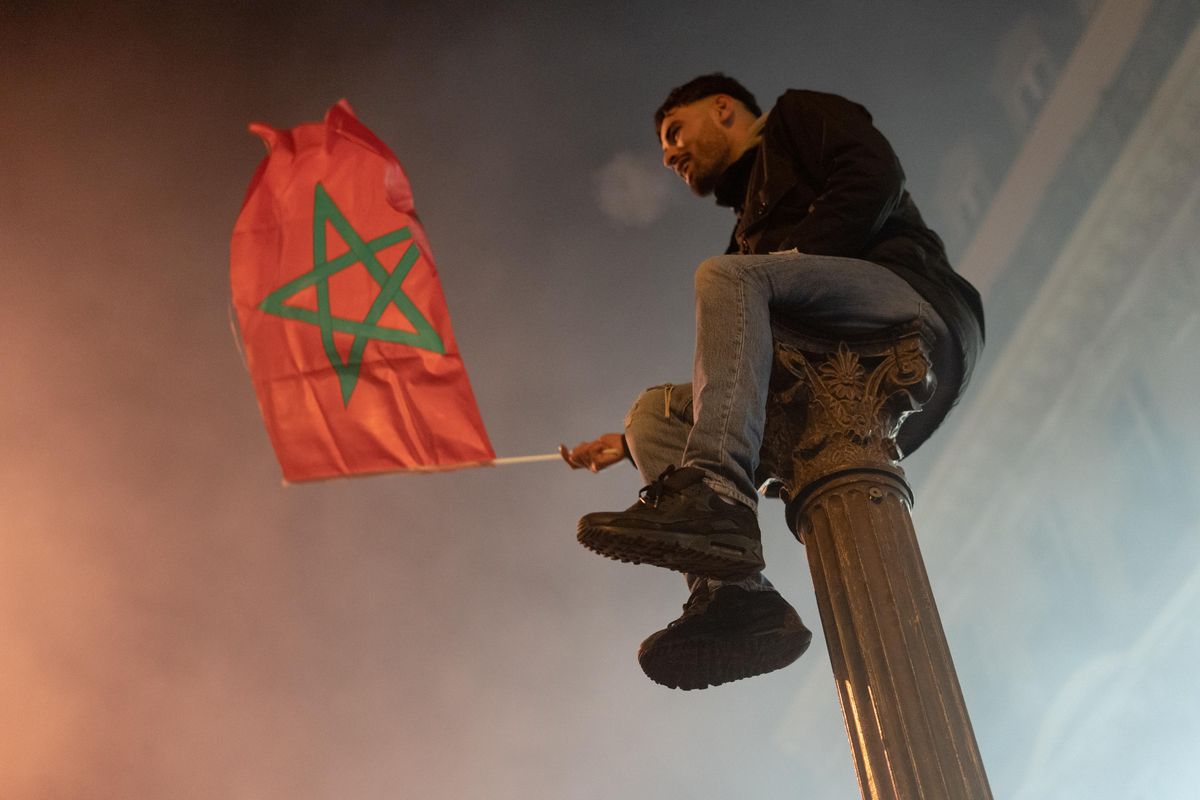Atlas Lions vs. French far-right
When reigning champion France takes on underdog Morocco in the World Cup semifinals on Wednesday, French President Emmanuel Macron will be in the stands. And whatever happens on the pitch it’s almost certain to cause tremors for him at home. The “Rocky Balboa” success of Morocco’s “Atlas Lions” – the first Arab or African team ever to make it this far in a World Cup – has struck a chord with millions of first- and second-generation French citizens of Arab and African origin. The worry is that a small minority of those fans may riot in the streets after the match — regardless of whether Morocco wins or loses — as they did last weekend in Paris after first Morocco beat Portugal and then France defeated England in the quarterfinals. Popular far-righters like TV provocateur and former presidential frontrunner Éric Zemmour will surely seize on any unrest to advance their calls for tighter restrictions on immigration. And that will cause a problem for Macron himself, who’s under pressure from the French right to pass a new law targeting illegal immigrants.
Orbán-EU draw
Another round of confrontation between the European Union and perennial EU gadfly Viktor Orbán has concluded. Once again, the Hungarian prime minister and Europe have each made concessions. This is not a surprise. Hungary’s economy and currency are struggling, and the EU has money that Orbán’s government badly needs. But Orbán knows how to pick fights with Brussels that boost his standing at home and force the EU to compromise in order to get his support for urgent European priorities. Late Monday evening, Hungary dropped its objection to an 18 billion euro ($19.15 billion) EU aid package for Ukraine and a 15% minimum tax for big corporations. In return, Hungary will get 5.8 billion euros in badly-needed COVID recovery money, and the European Commission has agreed to unfreeze 1.2 billion euros of the 7.5 billion euros it had previously withheld over concerns about corruption and rule-of-law violations in Hungary. Both sides will claim victory, but the battle will continue: the EU is still demanding reforms in Hungary that would strengthen judicial independence and anti-graft oversight. This ain’t over.


















